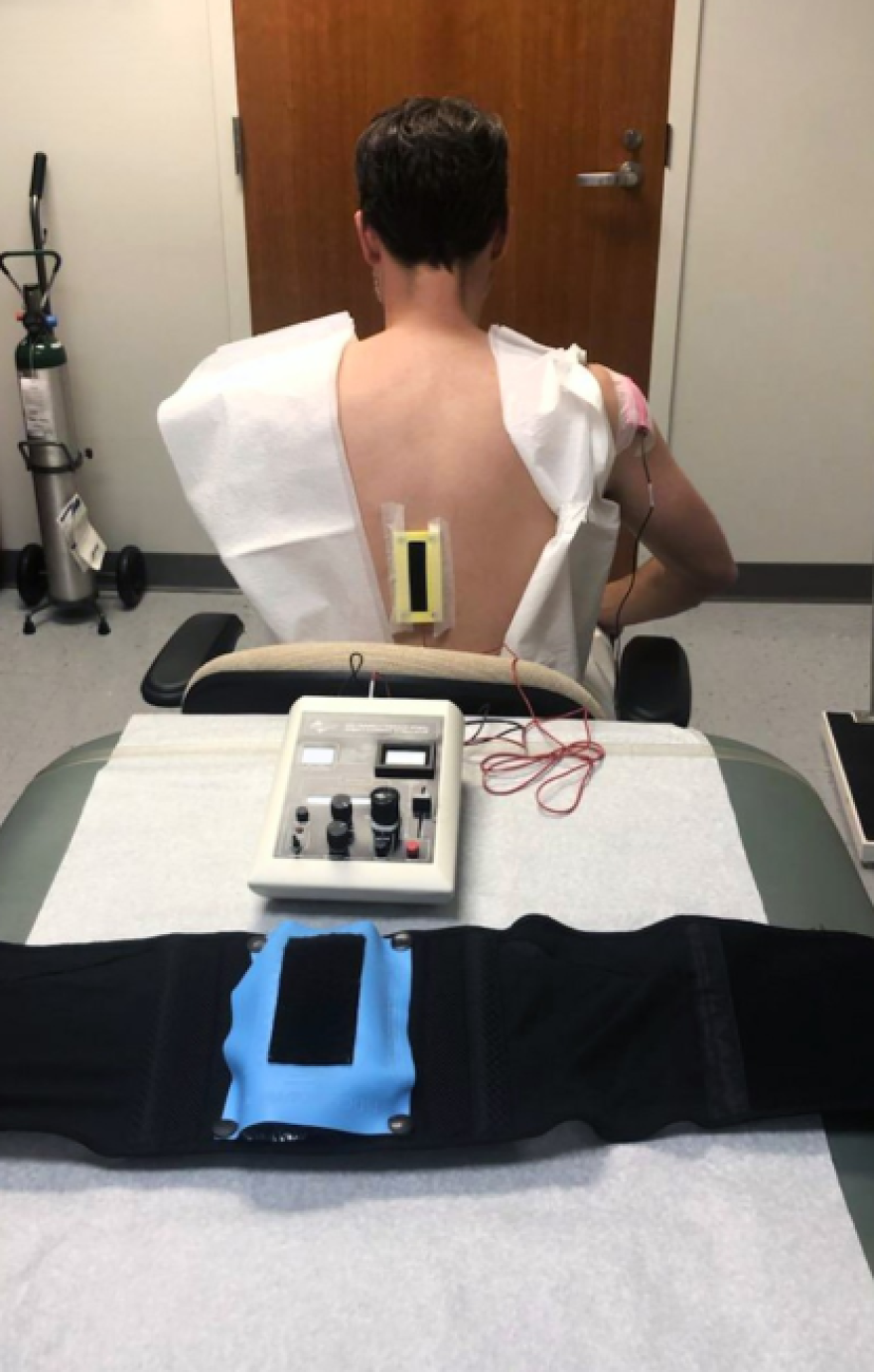Can electrical stimulation be useful in treating certain psychiatric conditions, like depression? A study is underway at the Lindner Center of HOPE.
Francisco Romo-Nava, MD, Ph.D., a University of Cincinnati researcher, is continuing to enroll participants ages 18-55 who aren't currently on medication. He wants to determine whether they'll respond to electrical stimulation as a way to treat depression and other psychological illnesses.
"If we can fix that disturbance, we may be able to improve both the mental and physical health of patients," he says. Romo-Nava believes the interaction between the brain and the body is a self-regulating feedback circuit that is often disturbed in psychiatric disorders.
UC says it is the first to study depression using electrical stimulation.
Researchers attach electrodes to the back and shoulder and deliver stimulation for 20 minutes each, three times a week for eight weeks. Romo-Nava says participants will barely feel it and it won't hurt them.
The central nervous system is made up of the brain and spinal cord components in addition to neural pathways that connect both. These pathways, consisting of nervous tissue, send information from the body to the brain and vice versa. It's hoped the stimulation will help patients who suffer from psychological illnesses.
The idea of brain stimulation isn't new. Recovering opioid addicts sometimes wear a device behind their ear that sends electric pulses to cranial nerves. This can lessen withdrawal symptoms. Restless leg syndrome is another area where brain stimulation is thought to help. Dayton Police even used it to reduce stress, as WVXU reported in this story.
Dr. Susan McElroy is chief research officer at the Lindner Center of HOPE. She says she was excited when approached by Romo-Nava for the study. "There's just no doubt that serious mental disorders, including depression, are really medical disorders," she says. "By affecting spinal cord function you are hopefully improving both brain function as well as bodily function."
Romo-Nava has funding from the Brain & Behavior Researcher Foundation, the National Alliance for Research in Schizophrenia and the National Institute of Mental Health.
The study is currently at 65% of its enrollment goal of 20 people. Participants can enroll here. After it's finished Romo-Nava says he will evaluate the results to plan the next steps. He stresses this is still very early in the research and he wants to have a larger clinical trial.
Eventually patients may be able to treat themselves. McElroy imagines what could be the case down the road: "I could actually see where these devices could maybe be made commercially available and don't necessarily require a doctor's prescription. So it'll be like an over-the-counter treatment of depression."
She admits this's a best case scenario. Romo-Nava agrees it is possible.



